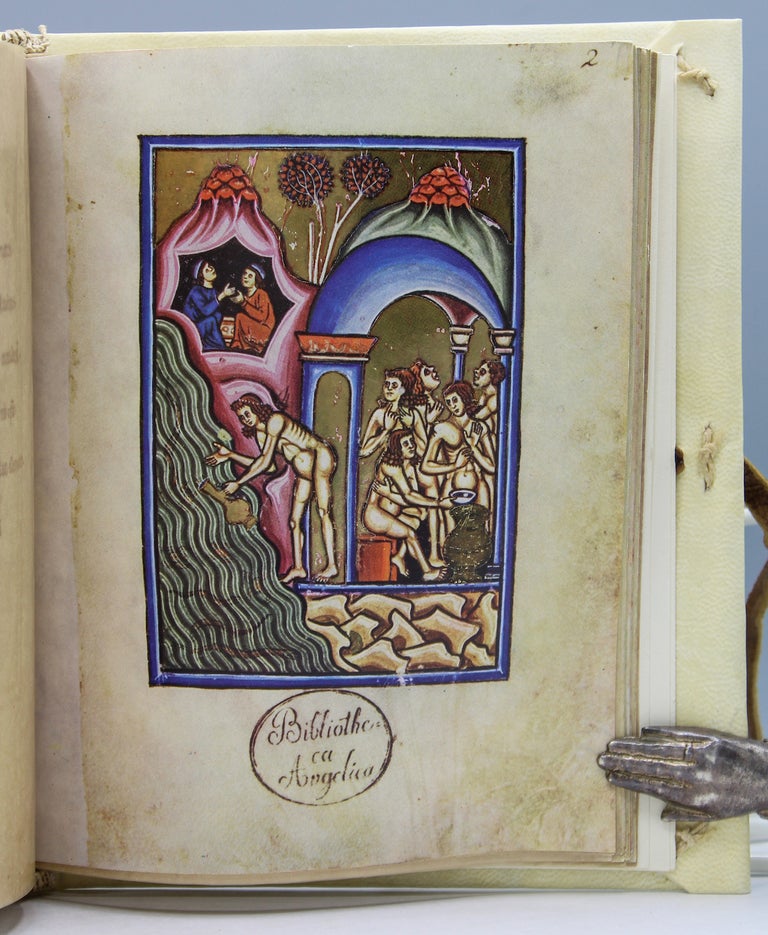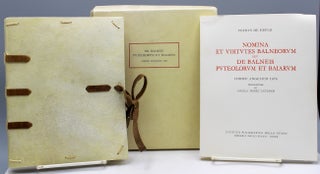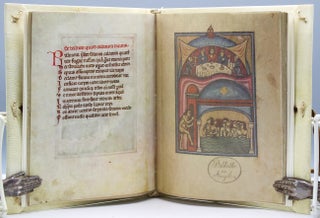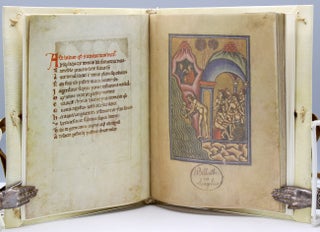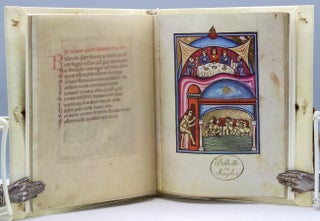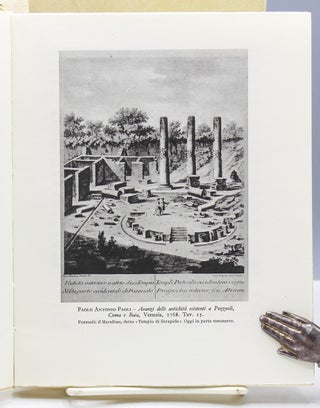Nomina et Virtutes Balneorum sev de Balneis Puteolorum et Baiarum. Codice Angelico 1474.
Rome: Istituto Poligrafico Dello Stato, Libreria dello Stato, 1962. Facsimile of the first work on medicinal baths in the Pozzuoli region of Italy. Two volumes, consisting of a manuscript facsimile with seventeen full-page illustrations in gold and colors, blue and red initial letters, and text in Latin, and a text volume with six black and white illustrations. Both volumes are quartos. The facsimile pagination is [2], [4], [42] pp. and the pagination for the text volume is [5]-97, [1, blank], [+1, colophon]. A fine set in a slightly worn clamshell case. Facsimile in full vellum with leather ties. Text volume in printed white paper wrappers with minor creasing to spine and upper corners. Item #17005
Petrus de Ebulo (Peter of Eboli, flourished 1196-1220) was a monk, court poet to Henry VI (Holy Roman Emperor and King of Sicily), didactic versifier, and chronicler who wrote in Latin. His flattering work Liber ad Honorem Augusti, written in Palermo, was dedicated. De Balneis Puteolorum et Baiarum was a medical text by Ebulo written in the thirteenth century. It was the first work about the baths in the Pozzuoli region, which were a natural resource said to have curative properties; there were over thirty near Naples. Eboli based the work on both his personal experiences with the baths and reports from others whose health benefitted from them. The present work is facsimile of the manuscript in the Biblioteca Angelica and contains thirty-seven epigrams and six couplets and shows that its author had a knowledge of contemporary medicine.
Angela Daneu Lattanzi (1901-1985) was a librarian, scholar, painter, and pianist. She was one of the founders of Soroptimist Club di Palermo and taught at the University of Palermo.
Price: $750.00



